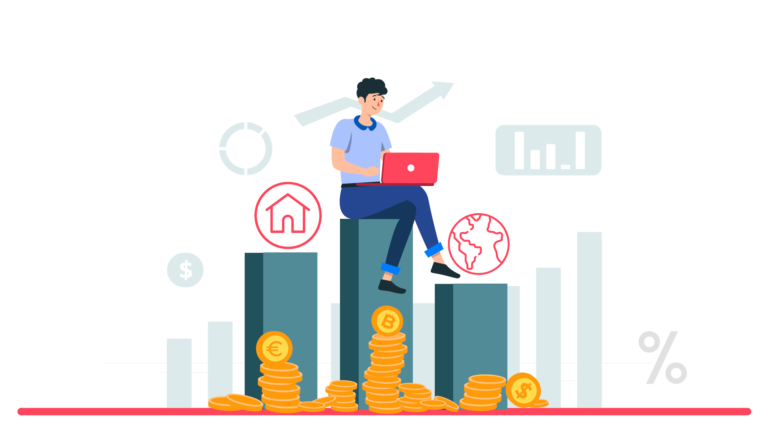
Investing in Local vs Global Stocks
While some investors occasionally strike gold with separate investments, most others need to have a well-structured investment portfolio that can provide steady growth and financial independence over time. In pursuit of such a portfolio, investment diversity is one of the major cornerstones. And you really can’t have true diversity without adding a stock or two from across the border or, say, the sea.
Of course, there are several factors to consider when constructing your investment portfolio. The most important ones remain your short-and-long-term goals, as usual. Then come your personal preferences in asset allocation. These are all important decisions in and of themselves. But when it rolls down to asset diversification, additional scrutiny is required. Even more so if you decide to diversify globally instead of just locally.
Why ‘globalizing’ your portfolio could prove important?
First, it’s simply common sense in seizing the best investment opportunities global investing can provide. Depending on which country or part of the world you reside in, it’s highly likely you’re already a global investor. For example, investors residing in Europe invested approximately $3.19 trillion into the US stock market last year. And that number is expected to continue its rise in the future. 2021 also saw the largest direct investment into Europe from the US, almost reaching $4 trillion. The reasons for global money movements like that are justified, as investors and investment groups look for best exposure to good market performance and post-covid market re-emergence.
While markets in the rest of the world seem to attract only a fraction of wealth moved between the US and Europe, there are still enormous amounts of money being invested all around the world by international investors. Similarly, these numbers are on an upward trend, which means only one thing – growth.
Growth is one of the issues investors face, when fixating solely on domestic markets. Especially if you come from a well-developed country. Typically, that would mean that market growth has slowed down already and while this offers less systematic investment risk, it also significantly reduces the potential returns on your investment. Investing in emerging or frontier markets, on the other hand, lets investors earn much more.
It also works the other way around, too. Investors from developing countries, or simply from regions that face short-term uncertainties that affect the local markets, may choose to invest in developed markets. This way an investor may achieve a more diversified portfolio which, in turn, will offer greater stability and less risk than if the same investor would’ve focused solely on the domestic market.
‘Hidden in plain sight’
New international investment opportunities around the globe keep popping up daily, if not hourly. However, for most of us, these opportunities remain virtually unknown at best or completely obscure at worst. Investment vehicles that are easy to invest in due to familiarity to our domestic investments usually require little to no additional expertise on investors’ part. For example, international or regional ETFs or mutual funds, that are similar to ones provided in your country of residence.
Yet, there are investment domains that require an investor’s due diligence simply because they are region-or-country-specific. Therefore, in order to achieve more returns, research is a must!
The most basic thing any investor should start with when thinking of investing internationally – check the global country credit ranking. This should help you determine how safe or how potentially profitable your investment will be. Typically, countries with higher ratings are developed and vice versa – lower ratings mean emerging or frontier economies. Technically, it means lower ratings could mean higher return on investment, too. However, if the risk/reward ratio becomes too high, retail investors should steer clear of these investment opportunities. Or at the very least research even more thoroughly and stick to the more traditional investment vehicles in the lower rated countries.
Apart from different economic backgrounds, different countries also face different geopolitical situations. While it may seem to you from afar that a certain country is very similar in many ways to your own country of residence, that all means nought in the face of a political or even military conflict in that region. Also, one should consider the geographical location in terms of agricultural impact as well. Some countries face a more volatile climate than others, so unexpected droughts or floods may leave a devastating impact on the whole region.
Last but not least – consider the language barrier as well as differences in market procedures or legislation. Language barriers may deny you the opportunity to react swiftly and accordingly, simply because you would likely miss out on important information if it’s only available in the local language.
Market procedures and country legislation could mean you’ll either be subject to more bureaucracy or fees. In both cases, that could reduce the profitability of an investment, either due to delay in transactions or excessive expenses.
Temper your expectations
There are some amongst us for whom the promise of higher returns would be reason enough to explore international markets. Others may look to reduce some of the risks in their domestic investments by diversifying their portfolios with abroad equity. Either way, it’s important to understand that only thorough research and knowledge of pertinent legislation will help you reduce risk and increase the margin of profit. Otherwise, investing in an unknown is a gamble, and an investor should avoid gambling with their portfolio at any stage of their journey.
Don’t expect that investing in an emerging economy will grant you high returns. Neither should you expect a risk-free investment in a developed economy – the risks, especially – systematic, are always there. Just do your due diligence or consult with an advisor that specializes in the country you want to invest in. Or stick with the safest bet and invest in a global or regional ETF or mutual fund.
This is an informative blog entry and should not be taken as financial advice.
